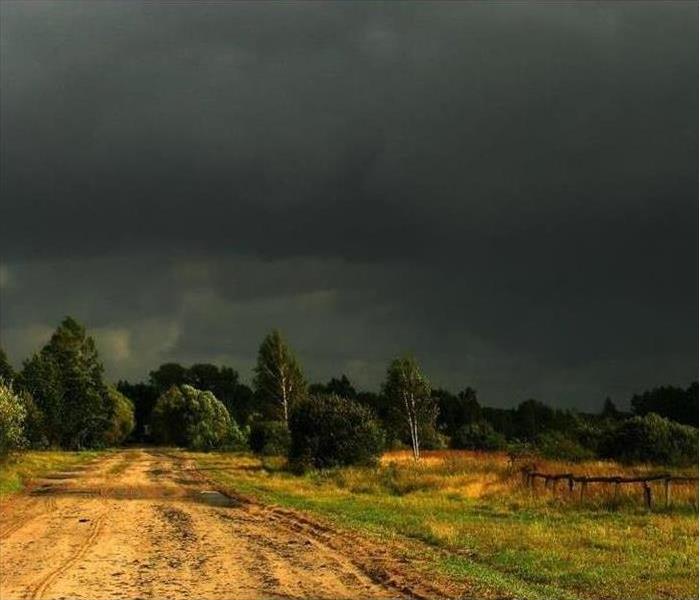Summer Storm Preparation
5/22/2023 (Permalink)
If you reside in an area prone to severe storms or tornadoes, it is crucial to be prepared with emergency supplies. Ensure you have enough water to last at least three days (one gallon per person per day), non-perishable food for the same duration, a battery-powered radio for weather updates, first aid kits, local maps, portable cell phone chargers, and other necessary items. Visit Ready.gov for a comprehensive list of essential items for your emergency kit.
Stay informed by signing up to receive emergency alerts. Most local communities have alert systems that send messages via email or text to your phone. You can typically sign up for this service on your community's website or follow your town's social media accounts if available. Additionally, follow national weather and emergency information social media accounts such as @NOAA, @NWS, and @FEMA for further updates on impending dangerous weather.
Keep in mind that power outages may occur during severe storms. Prepare accordingly by:
- Considering purchasing a standby generator if your area frequently experiences severe storms.
- Ensuring you have an ample supply of batteries for flashlights.
- Checking the functionality of smoke and carbon monoxide detectors, and having backup batteries on hand.
- Using surge protectors and turning off electronics and appliances to safeguard against power surges.
- Acquiring a solar charger for your phone.
- Keeping large ziplock bags filled with water in your freezer. These will serve as a source of ice and freshwater if the power goes out.
- If someone in your household relies on medical devices that require electricity, contact your utility company to potentially be added to a priority service list for faster reconnection.
Before each storm season, take precautionary steps to protect yourself and your neighbors. Move your car to a safe location that is less prone to flooding and secure patio furniture to prevent any damage or accidents.
Conduct a visual inspection of trees on and around your property before the storm season. Identify any hazardous limbs or trees and, if safely possible, trim the threatening branches. Seek professional assistance for sickly trees or precarious branches. Additionally, ensure your downspouts are connected, and water drains away from your house. Testing your sump pump by pouring water into the sump can help verify its functionality. Having a battery backup for your sump pump is also advisable.
Finally, review your homeowner's insurance policy. Summer storms can cause significant damage to your home, so take the time to review your coverage. If you are uncertain about any gaps in coverage, such as flood or disaster insurance, contact your insurance agency. Share your concerns and ensure you have the appropriate insurance coverage to protect against severe weather events your home might encounter during the summer.






 24/7 Emergency Service
24/7 Emergency Service